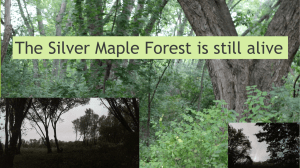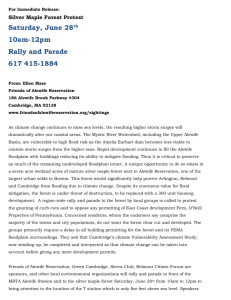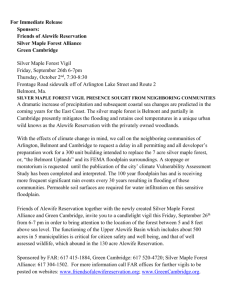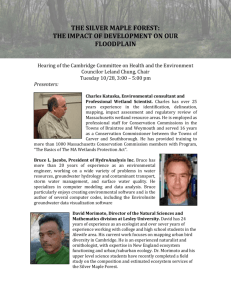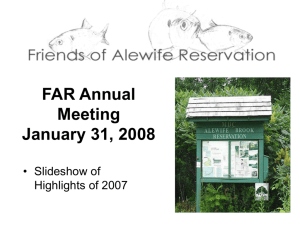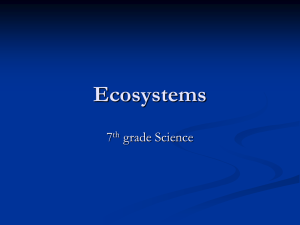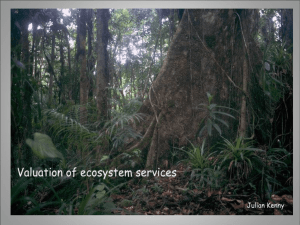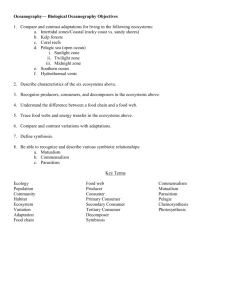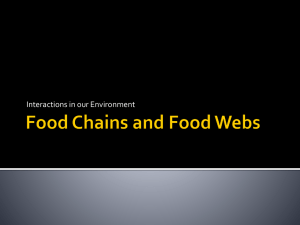Greater Alewife Ecosystem Restoration
advertisement
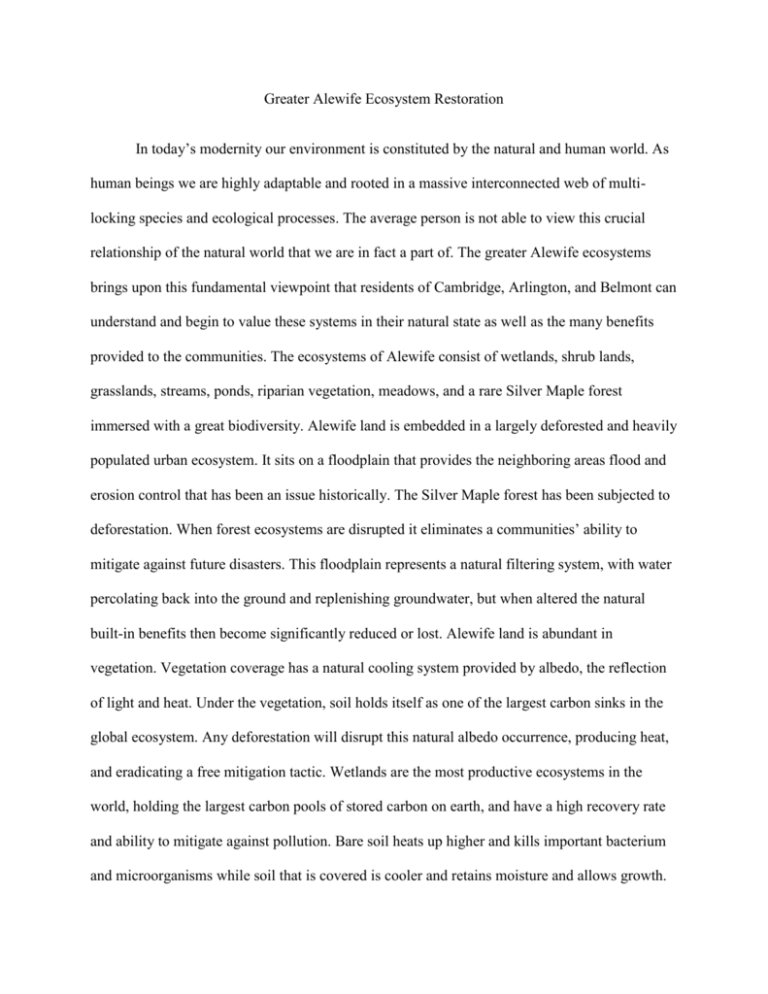
Greater Alewife Ecosystem Restoration In today’s modernity our environment is constituted by the natural and human world. As human beings we are highly adaptable and rooted in a massive interconnected web of multilocking species and ecological processes. The average person is not able to view this crucial relationship of the natural world that we are in fact a part of. The greater Alewife ecosystems brings upon this fundamental viewpoint that residents of Cambridge, Arlington, and Belmont can understand and begin to value these systems in their natural state as well as the many benefits provided to the communities. The ecosystems of Alewife consist of wetlands, shrub lands, grasslands, streams, ponds, riparian vegetation, meadows, and a rare Silver Maple forest immersed with a great biodiversity. Alewife land is embedded in a largely deforested and heavily populated urban ecosystem. It sits on a floodplain that provides the neighboring areas flood and erosion control that has been an issue historically. The Silver Maple forest has been subjected to deforestation. When forest ecosystems are disrupted it eliminates a communities’ ability to mitigate against future disasters. This floodplain represents a natural filtering system, with water percolating back into the ground and replenishing groundwater, but when altered the natural built-in benefits then become significantly reduced or lost. Alewife land is abundant in vegetation. Vegetation coverage has a natural cooling system provided by albedo, the reflection of light and heat. Under the vegetation, soil holds itself as one of the largest carbon sinks in the global ecosystem. Any deforestation will disrupt this natural albedo occurrence, producing heat, and eradicating a free mitigation tactic. Wetlands are the most productive ecosystems in the world, holding the largest carbon pools of stored carbon on earth, and have a high recovery rate and ability to mitigate against pollution. Bare soil heats up higher and kills important bacterium and microorganisms while soil that is covered is cooler and retains moisture and allows growth. Given the location of Alewife land, set in an urban environment, its complimentary mitigation benefits are continuous and the most effective services that exceed any artificial system. In an effort to restore these ecosystems, future plans are in place to build coherent plant communities, restore river banks and many small springs that have been obscured by erosion and disturbance. Part of the Silver Maple forest that has been cut down will be converted into a conservation site where grass self-organizes and grows naturally over the bare soil. Part of the initiative of the greater Alewife ecosystems is to integrate the communities in their natural environment. It is imperative that local Alewife communities join in unison and take forth local actions about land use and development. It is significant to blur the line separating people and their natural environment to better protect and restore the greater Alewife ecosystems for the present and future generations of both the natural systems and the communities.
